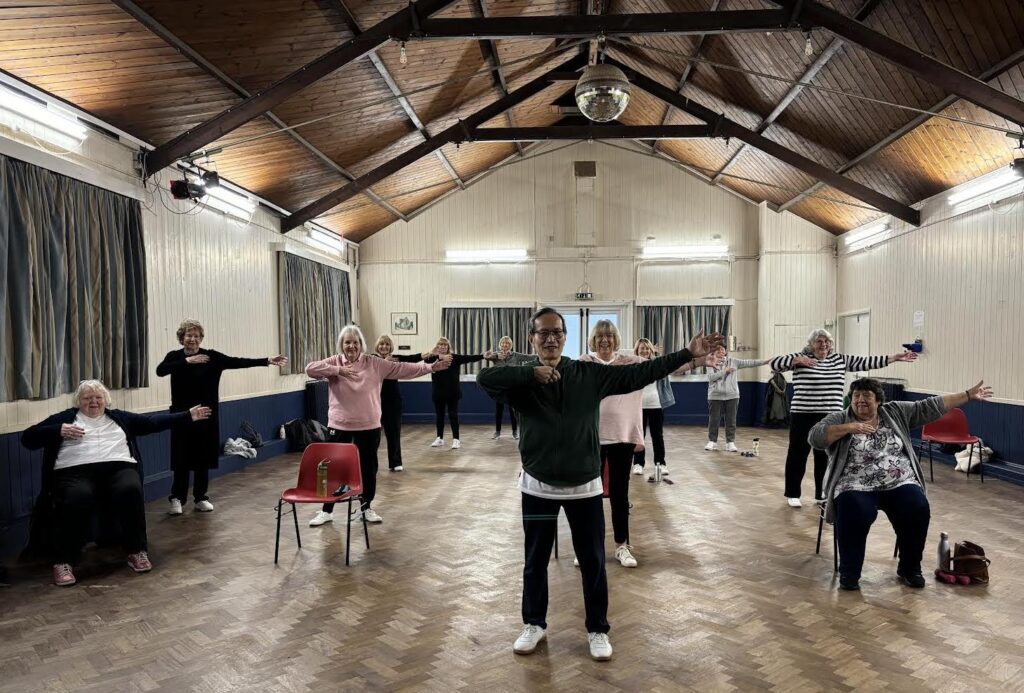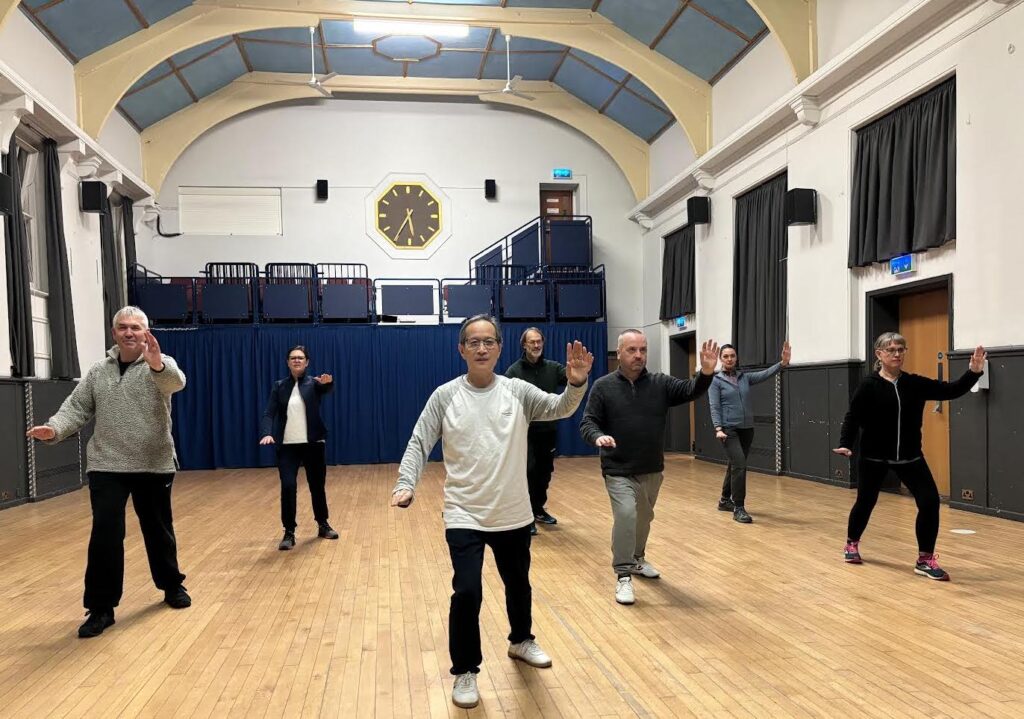- Stay Connected
 Abraham Lincoln
If given the truth, the people can be depended upon to meet any national crisis...
Abraham Lincoln
If given the truth, the people can be depended upon to meet any national crisis...
 Guildford news...
for Guildford people, brought to you by Guildford reporters - Guildford's own news service
Guildford news...
for Guildford people, brought to you by Guildford reporters - Guildford's own news service
Tai Chi Can Offer Relief With Many Chronic Diseases, Says An Expert From China
Published on: 16 Jan, 2024
Updated on: 16 Jan, 2024
By David Reading
Any outsider watching a master performing tai chi must surely be fascinated by the seamless connection of graceful movements, with each one flowing into the next. Overall there is a sense of focus, calmness and peace – a stark contrast to the fast, frenetic lives lived by many people, particularly here in the West.
In recent years, tai chi has sparked a keen interest across the UK, with its promise of producing significant physical and mental health benefits for its students.
In Guildford, a retired 57-year-old medical doctor from China – who was a tai chi champion in Beijing – has been running flourishing tai chi classes for almost 15 years.
Dr Luke Zhang came to the UK in 2001 in order to study for an MBA at the University of Surrey. He married here and has three children.
After completing his MBA, Luke founded Tai Chi Guildford in 2009 to focus on providing holistic tai chi benefits for the people of Guildford and the surrounding area. He now teaches 150 students in classes in Guildford, Wood Street Village, Bramley, West Clandon, Godalming, Woking, Farnham and Blackheath, as well as running sessions in care homes.
What sets Luke apart from many other approaches to tai chi is that he combines his modern medical training with his tai chi expertise.
His style of tai chi, known as the yang style, consists of slow, gentle physical movements providing an ideal way to keep fit in mind and body. It can aid relaxation and is sometimes regarded as “walking meditation.”
Luke has been practising tai chi for 38 years, having begun his training when he was 20. At that time he was studying medicine at Shandong Medical University in Jinan, Shandong Province. All medical students are required to practise tai chi in China.
Why has tai chi caught on in the West?
Luke said: “There are so many benefits. The main five are improved relaxation, flexibility, blood circulation, coordination, and balance with strength. Tai chi is very good for both physical and mental health particularly with Westerners in mind.
“My style of tai chi is slower than some other styles, more gentle, more relaxed, and suitable for all age groups. You can practice my style tai chi with walking, standing or sitting.
“Because tai chi is very good for physical problems, it can help people who have many chronic diseases like hypertension, diabetes, arthritis, heart disease, lung disease, release pain, and so on. Tai chi also can prevent injuries like protecting knees, lower back and shoulders.”
People attracted to Luke’s classes range from young adults to retired people, and he brings special benefits to people in care homes.
“The people love tai chi in care homes,” he said. “They can sit in armchairs or wheelchairs when they practise, and tell me that they can get more energy after a session. Some people come to the tai chi session by wheelchair but they can walk back afterwards. They feel added strength in their arms and legs, and more flexibility.”
To find out more about Tai Chi Guildford, go to: https://taichiguildford.co.uk/















Hilary V Minor (Mrs)
January 17, 2024 at 11:46 am
As one of Dr Zhang’s students, I can wholeheartedly recommend his classes. I started tai chi after falling and badly fracturing my left shoulder. The gentle actions of tai chi are helping to bring flexibility back into my shoulder as well as improve my balance which was also badly affected by the fall.
I find the classes relaxing and can well understand why it is called “walking meditation”. I now do Dr Zhang’s warm up exercise sequences regularly, particularly the exercises that work on the head, neck and shoulders.